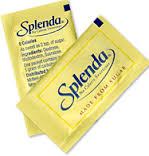Bias in Statistics > Funding Bias
What is Funding Bias?
Funding bias refers to when a study’s outcome is more likely to support the interests of the organization funding the study. A correlation has been found by multiple sources between funding source and outcome of research, for example tobacco research and chemical toxicity studies or nutrition studies and processed foods.
When companies pay for research into their products, a conflict of interest can happen. Studies funded by for-profit industries are more likely to yield biased results than those funded by non-profits, including governmental agencies like the National Science Foundation and National Institutes of Health.
Sources of Funding Bias
Funding bias usually happens when a backer has a financial stake in the outcome. It may be due to:
- Testing methods, when paid for by for-profits, may have an inherent bias towards producing positive outcomes for the company.
- Products may have gone through internal testing, weeding out ineffective or dangerous products before they get to the external testing stage.
Specific Example

Other Names
Funding bias is also called:
- Funding effect,
- Funding outcome bias,
- Funding publication bias,
- Sponsorship bias.
References:
Krimsky, S. (2102). Do Financial Conflicts of Interest Bias Research? An Inquiry into the ‘‘Funding Effect’’ Hypothesis. Science, Technology, & Human Values. 00(0) 1-22.
Tandel, K. (2011). Sugar substitutes: Health controversy over perceived benefits.J Pharmacol Pharmacother. Oct-Dec; 2(4): 236–243. doi: 10.4103/0976-500X.85936